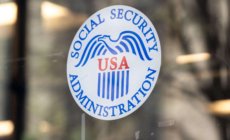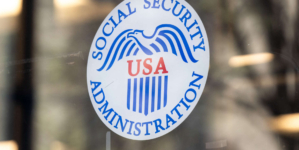-
Edison offers to pay Eaton fire victims for damages, in move to avoid litigation - 6 mins ago
-
How to Buy Cincinnati Reds MLB Bristol Motor Speedway Classic Gear: Shop Jerseys, Hats, T-Shirts - 26 mins ago
-
U.S. nurse working in Gaza warns of mass starvation - 31 mins ago
-
Five-for-Five: Shohei Ohtani Joins Dodger Greats With Latest HR Feat - 35 mins ago
-
Bomb squad initially thought grenades that killed 3 L.A. deputies were inert, search warrant says - 45 mins ago
-
Multiple suspects arrested after allegedly drugging and sexually abusing kids in underground bunker - about 1 hour ago
-
BetMGM Bonus Code NW150: Get $150 3M Open, MLB, WNBA Bonus - about 1 hour ago
-
Germany vs. Spain UEFA Women's Euro 2025 Highlights | FOX Soccer - about 1 hour ago
-
California man accused of hurling blocks at federal agents arrested - about 1 hour ago
-
Social Security Issues Update on Changes Impacting Recipients - 2 hours ago
ZIP Code Change Could Become US Law
Two bills designed to help smaller municipalities generate more local revenue have successfully passed through the U.S. House of Representatives and may soon be signed into law by President Donald Trump.
The bipartisan bills, HR 3095 and HR 672, introduced by Republican Representatives Lauren Boebert of Colorado and Mario Diaz-Balart of Florida, respectively, would assign distinct ZIP codes to 80 communities across the country.
HR 3095 was passed in a 278-121 vote, with 31 representatives not voting. HR 672 was passed unanimously.
Why It Matters
The ZIP code system was introduced in the U.S. in 1963, and while they’re most commonly known for helping with mail deliveries, codes also help with emergency response planning, economic development and insurance assessments.
Boebert has said cities without unique ZIP codes “have their sales tax revenue, insurance rates, mail delivery rates, and response times for first responders negatively impacted.” The congresswoman said the legislation would “address these issues and directly improve the quality of life for Coloradans and Americans living in these communities.”
GETTY
What To Know
Boebert’s bill, if signed into law, would affect 66 communities without unique ZIP codes across 19 states. The communities are listed below:
California
- Canyon Lake
- Hidden Hills
- Industry
- North Tustin
- Tehachapi
Colorado
- Castle Pines
- Centennial
- Cherry Hills Village
- Frederick
- Greenwood Village
- Highlands Ranch
- Keystone
- Lone Tree
- Mountain Village
- Mt. Crested Butte
- Severance
- Silver Cliff
- Sterling Ranch
- Superior
- Telluride
Florida
- Coconut Creek
- Deerfield Beach
- Lighthouse Point
- Oakland Park
- Parkland
- Wilton Manors
Illinois
Indiana
- Carmel
- Noblesville
- Westfield
- Zionsville
Kentucky
Louisiana
- Louisiana State University, Baton Rouge
- Montz
Minnesota
- Quartzite Township
- Springwater Township
Nevada
New Hampshire
New Jersey
New York
- Flanders
- Glendale
- Riverside
- Pendleton
- Wheatfield
North Carolina
Ohio
Oklahoma
South Carolina
Texas
- Fairview
- Fate
- Heath
- Josephine
- Murphy
- Northlake
- Parker
- Sargent
Virginia
Wisconsin
- Caledonia
- Franklin
- Glendale
- Greenfield
- Rochester
- Village of Harrison
- Village of Mount Pleasant
- Village of Somers
HR 672 would create unique ZIP codes for the following 14 areas:
California
Colorado
Connecticut
Florida
- Hollywood
- Miami Lakes
- Ocoee
Iowa
Wisconsin
- Franklin
- Greenfield
- Village of Caledonia
- Village of Mount Pleasant
- Village of Somers
Wyoming
What People Are Saying
Republican Representative Lauren Boebert of Colorado said in a news release: “Zip code reform is not a partisan issue; it’s a unifying, fundamental need for the municipalities that have been denied their own zip code and have dealt with public safety issues, mail delivery problems for seniors and veterans, business permitting challenges, and the loss of revenue that leads to cutting public services. It’s time for the Senators who represent the many communities in this bill to step up and deliver this bill to President Trump’s desk.”
Democratic Representative Joe Courtney of Connecticut, who sponsored HR 672, said following the vote: “The people of Scotland [Connecticut] face the serious consequences of having six ZIP Codes for a town of less than 1,600 people. Delivery of Social Security notices and checks, Medicaid information, prescription medications, and absentee ballot applications are disrupted day in day out. Residents have paid their taxes to the wrong town and sent their children to the wrong school.”
What Happens Next
Both bills are set to be reviewed by the Senate. If they pass, they will head to the White House to be signed into law.
Source link































